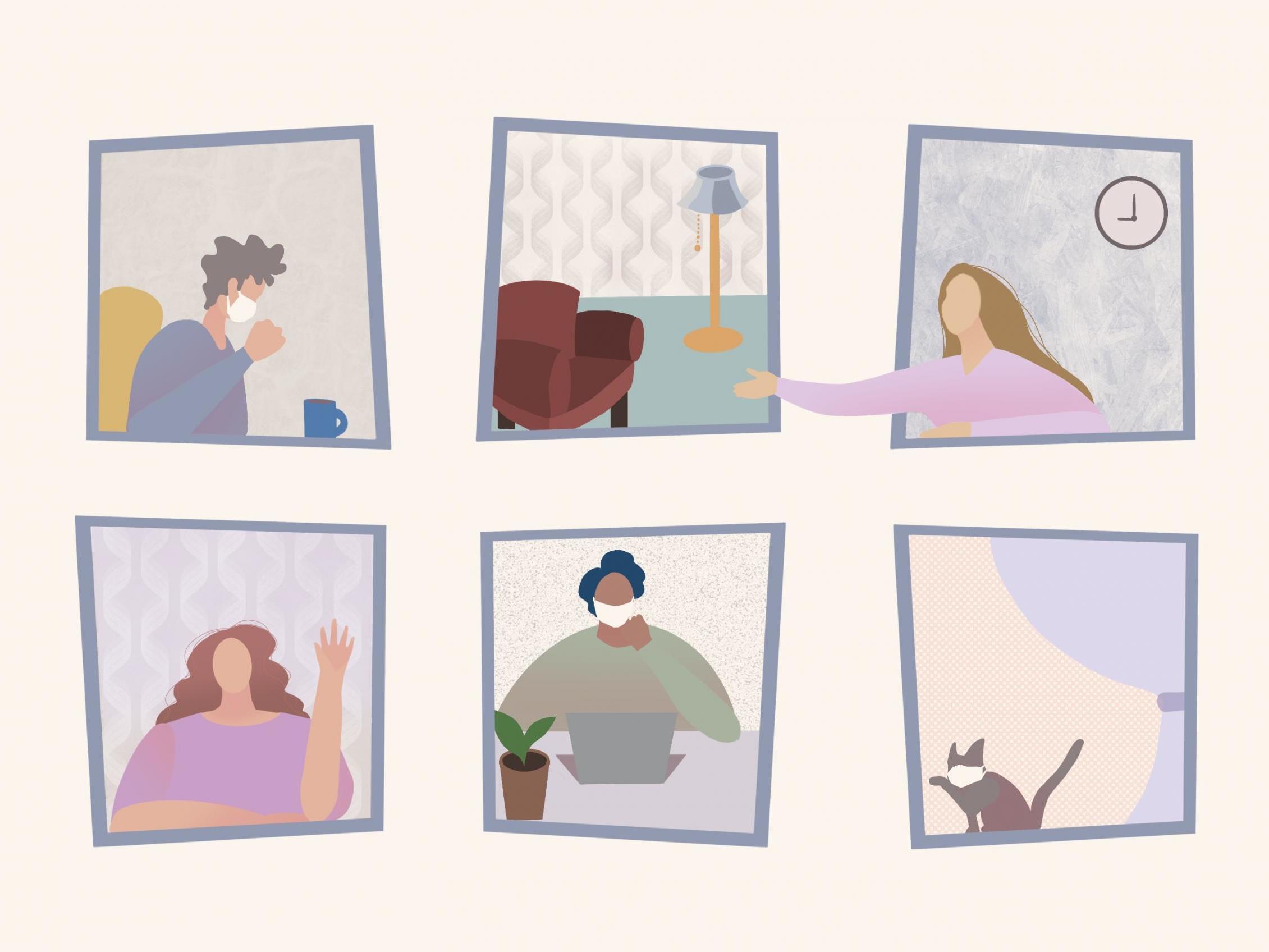‘Why were we not shielded from the beginning?’: Type 1 diabetics respond to high Covid-19 death rates
NHS England has confirmed Type 1 diabetics have a 3.5 times greater risk of dying from Covid-19, but the government still says diabetics do not need to shield. Sophie Gallagher speaks to those who feel ignored


It was in late February when Katie*, 49, heard in the playground that a class from her son’s Essex school had been on a trip to Northern Italy over half term. The coronavirus was already spreading rapidly in the country and some of the first lockdowns in Europe were being implemented in the Lombardy province on 21 February. Despite such precautions being a month away for the UK, Katie made the decision to take Ben* out of school immediately.
Ben, 14, was diagnosed with type one diabetes in 2016; with no family history, the illness has taken over family life. On the morning we speak, Ben has already had two hypos (low blood sugar, which can cause shaking, dizziness, fast heart rate, blurred vision, confusion, and even seizures or collapse if not treated). “It’s like living on a seesaw 24/7,” Katie tells The Independent. “We count carbohydrates in everything and he cannot eat without having an injection.”
Although Katie was concerned about the spread of Covid-19, she says once the decision was taken to keep Ben at home, she felt reassured. “I felt things were under control as much as they could be,” she says. After all, diabetics were not (and still are not) on the government shielding list, so if anything the family were being overly-cautious.
On 22 May, three months after Katie pulled Ben out of school, NHS England revealed people with type one diabetes have a 3.5 times greater risk of dying in hospital than the general population. Katie was distraught. “The rug has been pulled from under our feet and my world has been turned upside down. I am so scared and haven’t mentioned it to my husband as I don’t want to worry him,” she says. “I kept wanting to cry yesterday but couldn’t in front of my son.”
Since the start of lockdown, diabetics have been calling for more protection, saying they are just as at risk as others in the vulnerable category. Particularly as type one (which affects 10 per cent of the 3.9 million UK diabetics) is an autoimmune disease. Vanessa Haydock, 28, from Lancashire, and Amelia Lily, 25, from Middlesbrough, both have type one diabetes and run a diabetic community page on Instagram, Type1Team. They said they were “shocked and confused” about not being included on the high risk shielding list based on what they knew about the importance of diabetics avoiding common, and less serious, illnesses such as flu.
On the Diabetes UK website, published on 14 May (a week before the statistics), it articulated these fears: “We know that the guidance around what people with diabetes should be doing to keep themselves safe and well has been confusing and inconsistent over the last few weeks. And lots of you have been asking why people with diabetes have not been included in the group of people categorised by the government as ‘clinically extremely vulnerable’, also known as the shielding group.”
The fear wasn’t without reason; evidence had been growing since March that showed both types of diabetics were more at risk from Covid-complications; 32 per cent of the 24,739 Covid-19 deaths in English hospitals up to 17 May were patients with diabetes.
But the cause had partly been attributed to other comorbidity factors like obesity. On 28 April, a questionnaire sent to 166 UK hospitals found that out of 17,000 patients, those who were obese – with a body mass index (BMI) of more than 30 – had a 33 per cent greater risk of dying than those who were not obese. However, this would not explain why the numbers showed that those with type one were now more likely to die than type two. Type one diabetes isn’t linked to being overweight - only type two. In fact, obesity is believed to account for 80 to 85 per cent of the risk of developing type two diabetes.
The fear diabetics had articulated early on was now real, but the government still did not add them to the official shielding list - they are only considered “moderate” risk. An update on the Diabetes UK website on 20 May reiterated this: “People with diabetes are not in the clinically extremely vulnerable (shielding group). People with diabetes are in the 'clinically vulnerable group' which means they should follow stringent social distancing advice.” But this still did not mean they should self-isolate at home.
I’m worried that lives have and will be lost because a vulnerable group has been ignored...
Katie Pell, 31, from Royal Tunbridge Wells, who was diagnosed with type one diabetes in her final year of university, is angry diabetics weren’t listened to sooner. She says she felt “sad and proved right” after having to justify why she was so worried weeks ago and began self-isolating on 13 March. “I couldn’t think of a reason why I would not be more at risk,” she says.
“Our immune systems are weakened and should therefore be protected from deadly untreatable viruses. In the two week period before lockdown I went to Boots and purchased a digital thermometer, medicine, Lucozade and cleaning supplies. Deep down I knew that if I had to fight it there’s a high chance of it being quite serious.” For Haydock the statistics show that "we should have really all been shielded from the beginning".
Pell says now is time to take action - diabetics should be further educated by doctors and the government (she has not been contacted by her GP or diabetic nurse and is relying on information from charities). “Lives are at risk. It is so obvious to me,” she says. “I’m worried that lives have and will be lost because a vulnerable group has been ignored.”
Hayley McDonnell, 47, from Cheshire, who has to inject insulin five times every day to manage her type one diabetes, which she has had since 2007, has also not been contacted by any medical professional. “No doctor has called, written or emailed me,” she says. “I have sometimes felt fine and other times scared because I’m unsure of what should be happening.”
McDonnell has struggled with knowing whether to fully self-isolate, which requires her to not leave the house, get other members of her household to shop and get medicine, or just be cautious when out. “Realising I am not in the shielding list at times made me think I don’t need to be so concerned,” she says. “Actually in reality, I do need to be concerned.”
Bridget Turner, director of policy at Diabetes UK, says the government should now take this opportunity to “urgently review all of the emerging evidence and data...to inform their policies as this analysis underlines the urgent need to ensure people with diabetes are protected and supported, especially as lock-down measures are eased.”
I have previously asked the doctors to take diabetes away from my son and give it to me...
Turner recommends all diabetics follow “stringent social distancing measures to reduce their chances of catching the virus altogether” although does reassure people that the “risk of dying from coronavirus remains very low”.
The charity is also urging the government to ensure that people with diabetes who have returned to work - Boris Johson’s roadmap announcement on 10 May said all those who cannot work from home can return to their workplace - must be kept safe, either by continuing to work from home, abiding by social distancing measures, or being put on furlough if necessary.
For Katie, the statistics have come as a shock but confirmed what she already suspected: her son was vulnerable. While she is glad she took early precautions she also wishes the situation were different. “I have previously asked the doctors to take diabetes away from my son and give it to me - silly, but now I really mean it,” she says. While the government continues to not add diabetics to the shielding list, the messaging may seem unclear, but the numbers are speaking for themselves.
Join our commenting forum
Join thought-provoking conversations, follow other Independent readers and see their replies
Comments
Bookmark popover
Removed from bookmarks